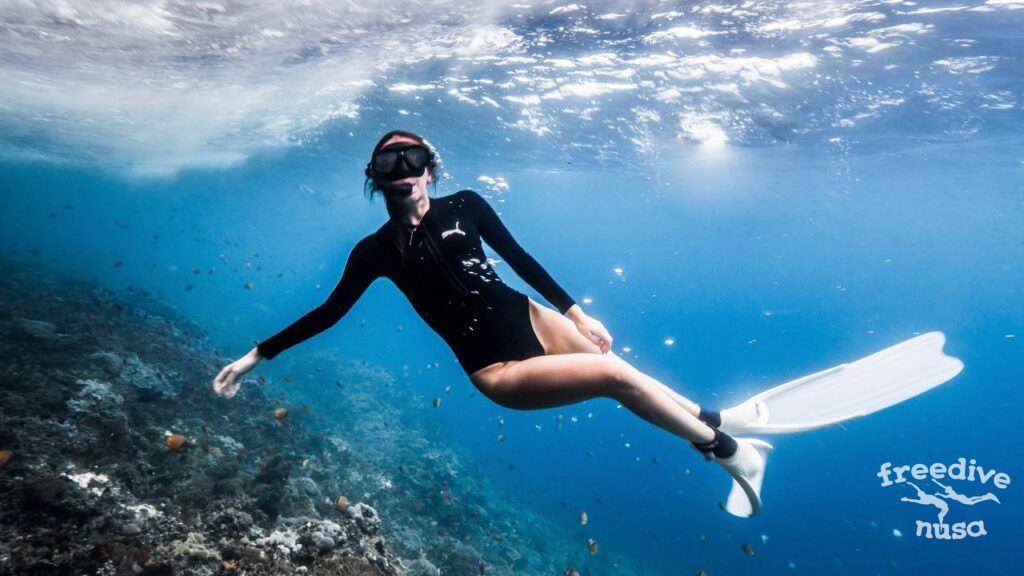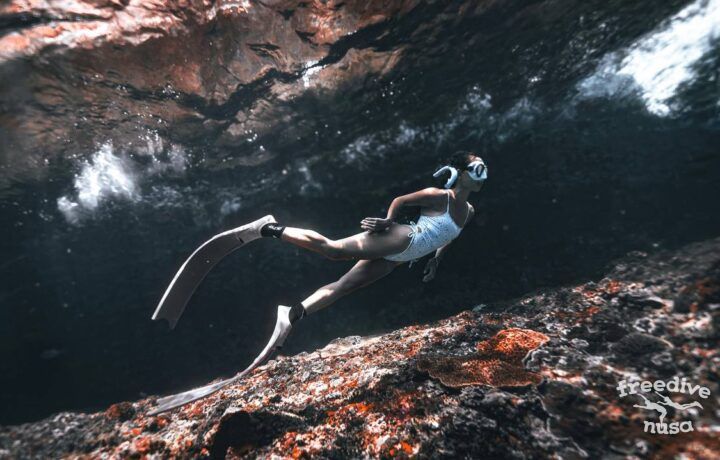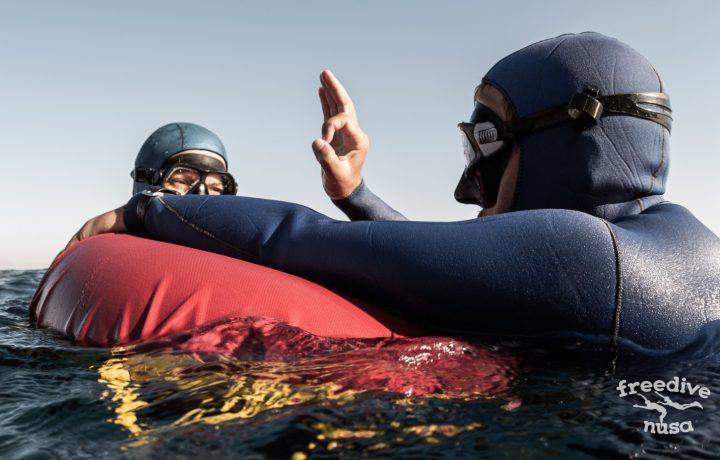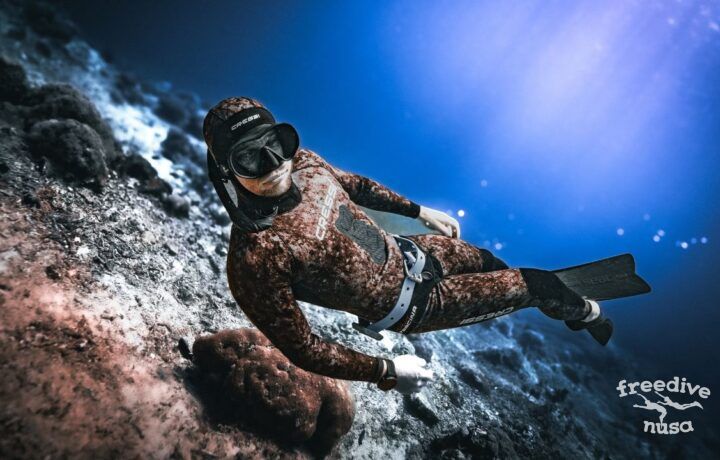Freediving is a transformative sport that connects the body and mind. Whether you’re coming back after a break or just beginning your freediving journey, proper preparation is essential for a smooth and successful return. In this guide, we explore the key principles for reentering the water safely, focusing on physical conditioning, mental focus, and the right techniques to maximize your progress.
1. The Science Behind Freediving
Freediving involves breath-holding underwater, which places the body in a unique low-oxygen environment. This forces physiological adaptations, such as improving oxygen efficiency and increasing tolerance to carbon dioxide buildup. Over time, these adaptations allow the body to dive deeper and hold the breath longer. After taking a break, it’s important to ease back into training, allowing your body to re-acclimate and gradually build endurance once again. Start with light sessions and progress at your own pace.
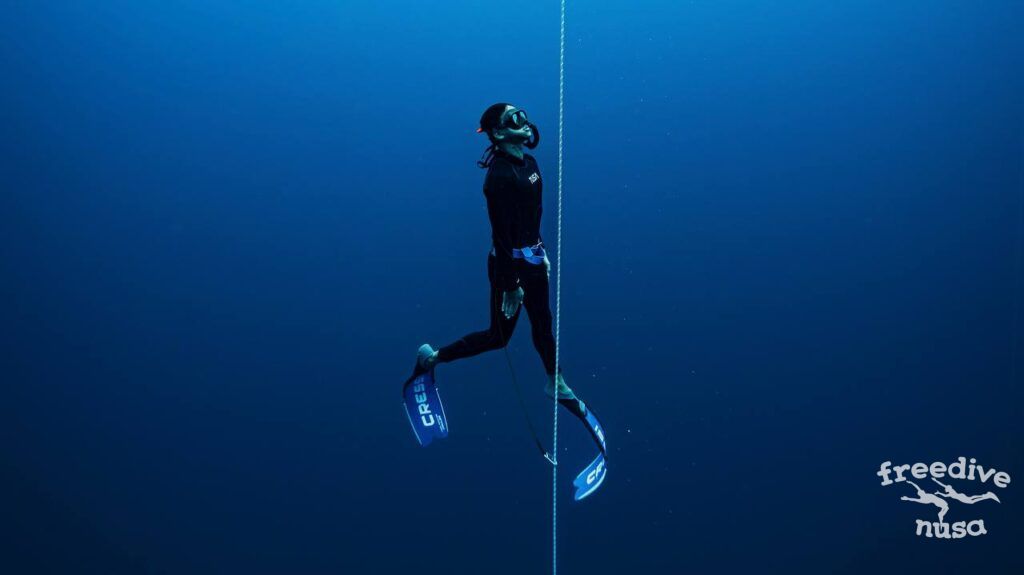
2. Creating a Tailored Training and Recovery Plan
Rebuilding your freediving skills after time off requires a structured approach. Each individual has different thresholds for breath-holding and metabolic capacity, so your training plan should be designed based on your personal needs. Initially, opt for lower-intensity sessions to avoid overstraining the body. Begin with gentle warm-ups to prepare your body for the work ahead. Depending on your goals—whether to maintain your fitness level or push for deeper dives—adjust the frequency and intensity of your training.
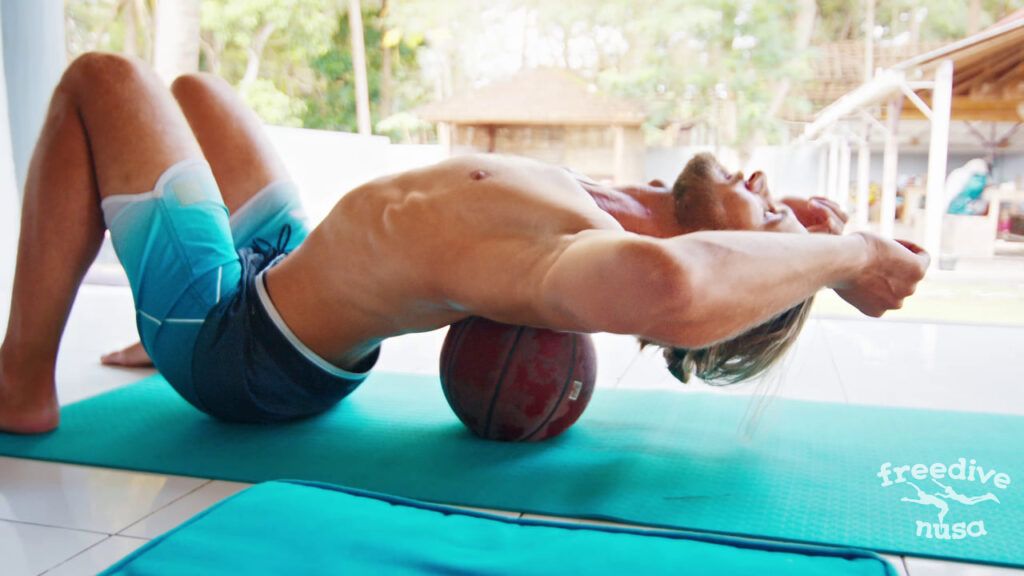
3. Optimizing Nutrition and Hydration
The fuel you put into your body plays a crucial role in freediving performance. To ensure optimal breathing and endurance, avoid foods that cause mucus buildup, such as dairy, gluten, and refined sugars. These can obstruct sinuses and disrupt your training. Instead, opt for hydrating foods such as fresh fruits, vegetables, and lean proteins that support overall health. Maintaining good hydration is essential, as dehydration can negatively affect physical and mental performance. Avoid stimulants like caffeine and alcohol, as they can elevate heart rate and hinder relaxation.
4. Recovery Methods: Breathing Exercises and Relaxation
Proper recovery after each session is just as important as the training itself. This includes not only physical rest but also mental restoration. Integrating targeted recovery practices, such as breathing exercises, stretching, and meditation, can help relax muscles and clear the mind. Breathing exercises—especially those done outside of water—help improve lung capacity and teach the body to adapt to breath-holding. Stretching and meditation promote relaxation, reduce tension, and enhance focus, all of which are critical for progressing in freediving.
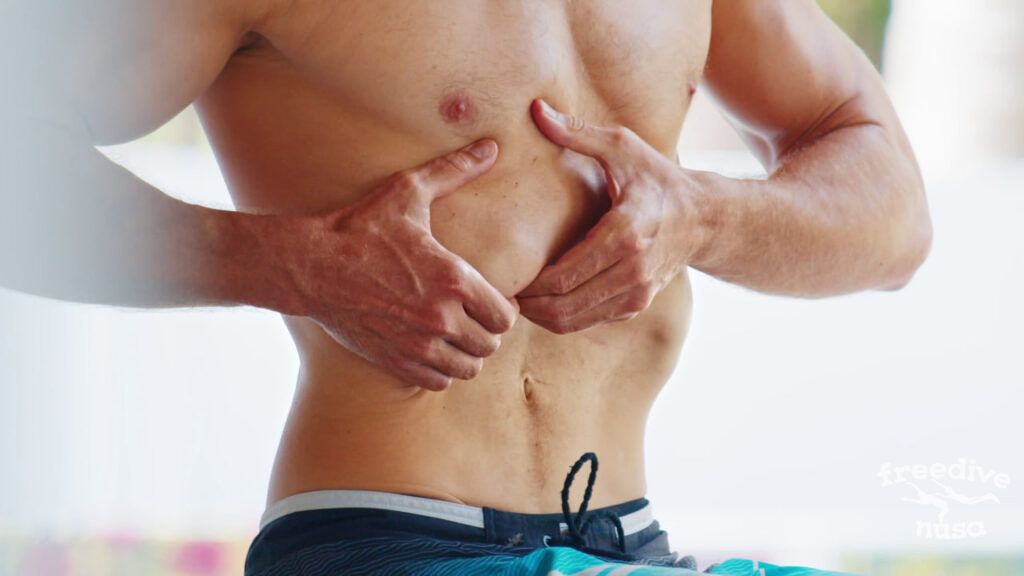
5. Strengthening Mental Focus and Overcoming Anxiety
Freediving challenges not only the body but also the mind. Returning to diving after a break may bring up feelings of apprehension or even fear, particularly when it comes to deep dives. Managing these psychological barriers is a crucial part of the process. Using mindfulness techniques and meditation can help reduce stress and increase comfort in the water. By focusing on calming your mind before each dive, you can overcome anxiety and perform with greater confidence. A skilled instructor can also guide you through mental exercises, offering strategies to conquer fear and build mental resilience.
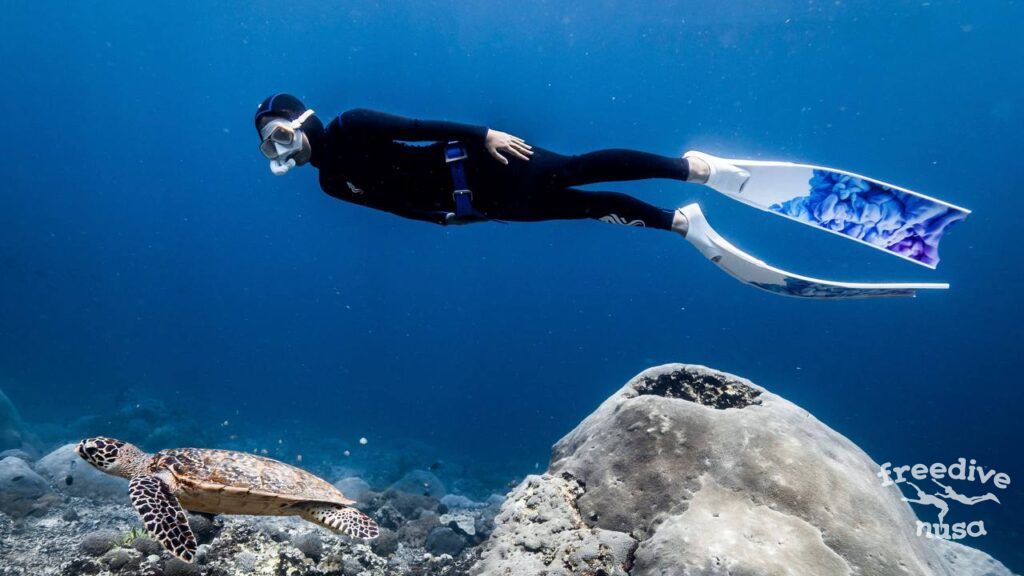
6. The Importance of Working with an Instructor
One of the most beneficial aspects of returning to freediving after a break is the support of an experienced instructor. A professional can help ensure that your technique is sound, your progression is steady, and your safety is prioritized. With their guidance, you’ll receive personalized feedback to improve your breath-hold efficiency, dive depth, and overall comfort in the water. Before getting back into the water, it’s also advisable to consult with a healthcare provider to ensure your cardiovascular health and general fitness are in good standing for freediving.
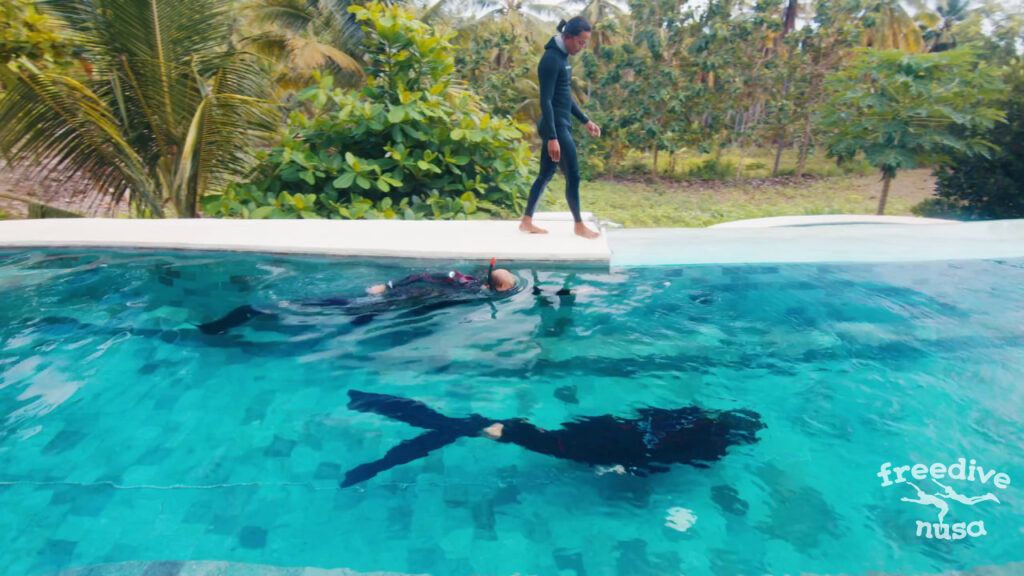
Freediving requires more than just physical strength—it’s a delicate balance of body awareness, mental calm, and breath control. Returning to the sport after a break means focusing on gradual progression, starting with light training and working up to more demanding dives. With the right mix of physical preparation, nutrition, mental techniques, and professional guidance, you can safely and confidently return to freediving, enjoying all the physical and mental benefits it has to offer. By taking the time to reset and rebuild, you’ll be able to dive deeper and longer, unlocking new possibilities in your freediving journey.
